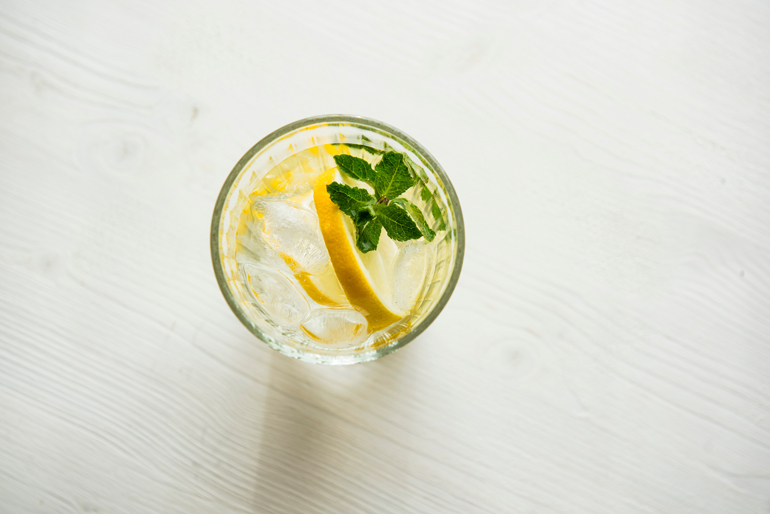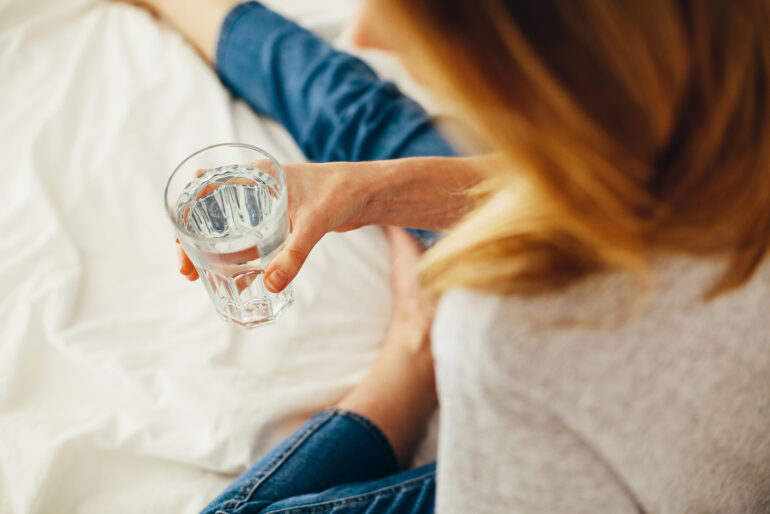“Drink more water!” is advice for healthy living you’ve heard plenty of times before, but staying adequately hydrated is never as simple as it sounds. Here, we slake your thirst for guidance with some expert answers to all of your burning hydrations questions.
Is hydration really all that important?
Short answer: yes. People underestimate the role of water and the power it has over their health.
“Water is as important to life as the air we breathe,” says Brunilda Nazario, M.D., Associate Medical Director and Lead Medical Editor, WebMD. “Drinking fluids and staying hydrated is key to your overall health.”
What are the specific health benefits of being properly hydrated?
When you drink enough water, your body thanks you. Proper hydration has numerous physiological benefits.
“Water is one of the most essential drivers to your metabolism,” says Nazario. It also helps with weight loss in a variety of ways, including filling the stomach, which suppresses hunger hormones. “People are also surprised to hear that cold water can help you burn calories. This happens when the body spends energy heating up cold water to body temperature,” she says.
That alone may get you to start drinking more water, but she also notes that the brain is comprised of 75 percent water. “What might seem like a minor amount of dehydration can drop your ability to concentrate, be alert, and make simple decisions,” Nazario says.
Laura McIntyre, M.D., Northwestern Medicine Immediate Care Center in Deerfield, Illinois, says that staying sufficiently hydrated can increase your energy level, help your body fight off infection, and stave off tension headaches, which are commonly caused by dehydration. Sufficient water can also help stave off constipation and kidney issues.
Water also keeps your skin not only looking good but functioning well, too. “Not drinking enough makes your skin dry and diminishes its function, including its ability to help control your body temperature,” says Nazario. Insufficient fluids can also exacerbate certain skin conditions like eczema.
How much water should you drink each day?

This may be the most basic question, but it can be one of the harder ones to answer. The CDC says on its website that “there is no set recommendation for how much plain water adults and youth should drink daily.”
“The amount of daily water needed differs greatly from person to person. A general guideline is 0.5 ounces per pound that you weigh per day. If you weigh 150 pounds, that would be 75 ounces, which would be approximately nine glasses of water per day,” explains McIntyre.
It’s safe to say that most people are not drinking enough water. According to the CDC, in 2005-2010, U.S. youth drank an average of 15 ounces of water and U.S. adults drank an average of 39 ounces of water on a given day.
Other factors to consider include weather — warm, dry climates mean you need to drink more — and activity level — exercising increases your hydration needs. Also, when you’re sick with a fever, diarrhea, or vomiting, you need more fluids than you otherwise might. The CDC notes that pregnancy and breastfeeding can also impact the amount of water needed to stay properly hydrated.
If you want to gauge whether you’re getting enough water, McIntyre says monitor the color of your urine. Ideally, it will be a pale yellow. If it is darker than that, it’s a sign that you need to drink more.
It’s worth noting that it is possible to have too much of a good thing. “When you drink water in excess, it can alter the concentration of electrolytes in your body, which can cause serious problems like seizures,” says McIntyre. Dr. Jerry Leikin, a medical toxicologist with NorthShore University HealthSystem, concurs. “Too much of anything can be harmful,” he says.
It’s hard to get excited about water. Do other beloved drinks like coffee and wine count?
Don’t shoot the messenger, but the experts agree that the answer is no.
“Both caffeine and alcohol are diuretics and therefore dehydrate you,” says McIntyre, who adds that if you are drinking those beverages, you need to drink even more water than normal to compensate.
Are there other more exciting ways to increase my water consumption?

Yes! Food, especially fruits and vegetables, can be a good source of water. McIntyre recommends lettuce, celery, watermelon, and grapefruit, noting that they have especially high water content at more than 90 percent water each. “These are very healthy foods with the benefit of also helping you stay hydrated,” she says.
Is my water safe?
“The benefits of drinking water far outweigh the risk — by a lot,” says Lakin.
While you may be worried about your drinking water after hearing about the high levels of lead in the water in Flint, Michigan, he says that’s a highly unusual occurrence.
He notes that most public health officials disclose what is in tap water and for adults in usual circumstances in the United States, “it is not a concern.” He says that “in general, it’s OK to trust” that your drinking water is safe in this country.
Well water, however, should be checked, he says, as should water in high-risk areas for lead.
Water filters are most often not be necessary from a toxicity standpoint, he says. That said, if they make the water taste better and make you more likely to drink it, then filter away.
7 Tips to Ensure You Hit Your Daily Water Goals
- Set an alarm on your phone or smartwatch to remind you to drink. Nazario says doing so reminds her to drink 16-20 ounces every 90 minutes. As an added bonus, it’s a good time to fit in a walk to the bathroom and to refill the water bottle, which helps break up periods of inactivity.
- If you find plain water boring, consider water bottles that allow you to add fruit to infuse the water with flavor. Nazario suggests experimenting with different combinations. Another option is trying decaffeinated herbal tea.
- If measuring motivates you, check out apps or high-tech water bottles that track your consumption.
- Drink some water before every meal.
- Start your day with water and don’t let yourself drink anything else until it’s gone, suggests Deborah Gilboa, M.D., Clinical Associate Professor at University of Pittsburgh School of Medicine and founder of AskDoctorG.com.
- If you love soda and can’t give up bubbles, try sparkling waters.
- Use the one-to-one rule: for every cocktail you drink, have a glass of water. You can apply the rule to soda, too. This approach can help you step down your consumption of the sugary beverages in favor of more water.
Feature photo by Daria Shevtsova from Pexels.
 Shannan Younger is a writer living in the western suburbs of Chicago with her husband and teen daughter. Originally from Ohio, she received her undergraduate and law degrees from the University of Notre Dame. Her essays have been published in several anthologies and her work has been featured on a wide range of websites, from the Erma Bombeck Humor Writers Workshop to the BBC. She also blogs about parenting at Between Us Parents.
Shannan Younger is a writer living in the western suburbs of Chicago with her husband and teen daughter. Originally from Ohio, she received her undergraduate and law degrees from the University of Notre Dame. Her essays have been published in several anthologies and her work has been featured on a wide range of websites, from the Erma Bombeck Humor Writers Workshop to the BBC. She also blogs about parenting at Between Us Parents.
Shannan is the Illinois Champion Leader for Shot@Life, a campaign of the United Nations Foundation that supports vaccination efforts in developing countries to ensure life-saving vaccines reach the hardest to reach children. “Vaccines are one of the most effective ways to save the lives of children in developing countries and I’d love nothing more than to see diseases eradicated,” Shannan says. “We are so close to getting rid of polio for good!”

